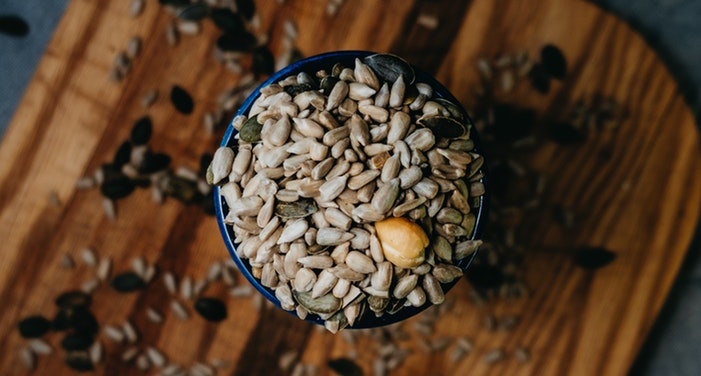In recent years, vitamin B12 has been increasingly studied and considered in our diet. While vegans and vegetarians are cited among the populations at risk, many other factors can lead to a deficiency of this vitamin and affect other types of consumers.
In this article we review some points to know about vitamin B12, regardless of the diet observed.
The impact of vitamin B12 deficiency on cellular aging
The impact of vitamin B12 deficiency is very significant since it affects all cell renewal processes in the body.
Difficult to detect, vitamin B12 deficiency often goes unnoticed because its symptoms are similar to those of other pathologies.
One of the first visible symptoms concerns hair loss because the lack of vitamin B12 in adults is generally a vector of accelerated aging due to a lack of efficiency in cell multiplication.
Vitamin B12 deficiency can also be detected by a negative change in blood parameters (red blood cell count, etc.) and certain clinical signs (fatigue, muscle pain, tingling, etc.).
The NRV (Nutrient Reference Value) defined in Europe for vitamin B12 is very low (2.5 micrograms per day); the recommendation in the USA is 6 µg/day in the USA, which is more realistic for defining the average needs of an adult.
Remember that there is no defined maximum safe dose for vitamin B12: when in doubt, it is always better to have 'too much than not enough'.
Factors that influence the absorption of vitamin B12
It is often assumed that simply consuming products enriched with vitamin B12 or meat will be enough to avoid a deficiency.
There are actually many other factors that influence the variation in Vitamin B12 absorption:
- Age
- Specific pathologies such as diabetes
- Taking medication ( metformin )
- The additional needs of growing youth
- Populations with increased needs: pregnant women, athletes
- Losses of around 30% during cooking of meat
All these factors can negatively influence the absorption of vitamin B12 in the body.
Several studies show that a significant proportion of the population (excluding vegans and vegetarians) suffers from a vitamin B12 deficiency. This is not trivial.
Note that between 10 and 24% of elderly people (seniors) have a vitamin B12 deficiency, a prevalence which increases with age !
For these different reasons, it is better to target minimum daily intakes of 10 µg/day.
Food sources of vitamin B12:
Consuming animal protein doesn't solve everything!
It is commonly said that only animal products contain vitamin B12 in any significant amount (hence the absolute need for supplementation for vegetarians and vegans), which is true.
However, the vast majority of animal products (meat, milk, fish) have modest levels of vitamin B12. Only ruminant offal (calf liver, etc.) has very high levels of vitamin B12, as shown in the table below.
(* average values subject to variations of around 30%)

This allows us to understand that in practice, many omnivores who prefer white meats and dairy products may have insufficient intake of Vitamin B12 .
Only regular consumers of livers and other offal, which are very limited in number and constantly decreasing ( the average annual consumption of "bovine livers" is around 150 grams per inhabitant/year in France - source: Agrimer 2014 ), are protected from a possible lack or deficiency in vitamin B12.
Flexitarian behavior, which consists of significantly reducing the intake of animal products in favor of plant sources, as well as all weight control programs that aim for moderation of intake (particularly of 'red' meats), are particularly susceptible to insufficient intake and vitamin B12 deficiencies, and this, let us repeat, is even more so with advancing age.
We recommend having your Vitamin B12 intake assessed by a Nutritionist or Dietitian .
Our food supplements against vitamin B12 deficiencies
It is obviously easy and economical to secure vitamin B12 intake at a reasonable cost.
Among our Vegan Argalys Essentials food supplements , we offer two formulas for this:
- For daily use: Multivitamins and Minerals dosed at 10 µg of B12 per capsule.
- In weekly use: B12 'high dose' (1 mg) and iodine and selenium.

 04 74 03 98 80
04 74 03 98 80










